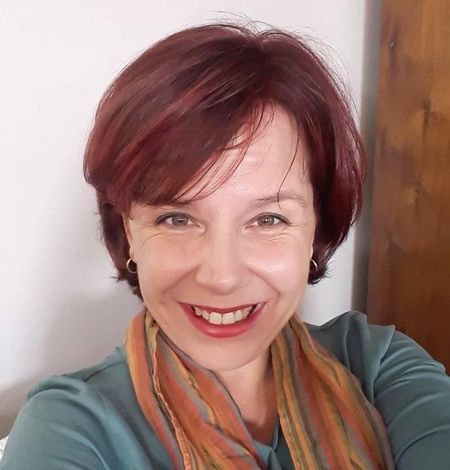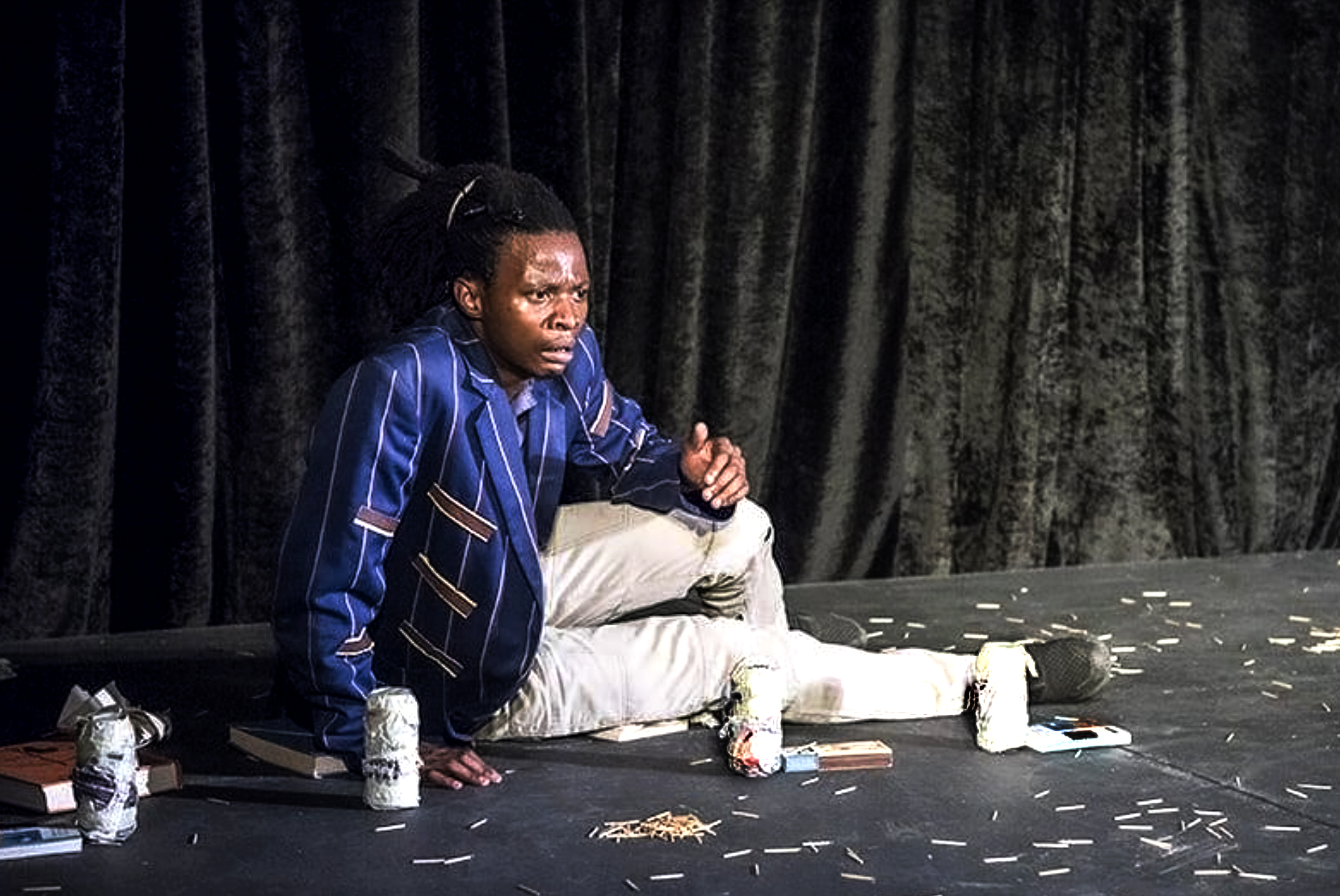The narrative is one of resistance, but the mission, actor Xolisa Ngubelanga explains when he talks about his one-man show Flamebook, is for the conservation of deteriorating buildings in Gqeberha that hold enormous historical significance.
His play Flamebook deals with buildings being torched in resistance, but also serves as a passionate plea for buildings, as the vessels of people’s stories, to be treasured and restored.
“Fire, capable of both disaster and cleansing, has proved to be the oppressed people’s weapon of choice during protest and has become characteristic of the South African Struggle. A detained student leader uses fire to connect the trials of the FeesMustFall [movement] with that of his father during the state of emergency.
“The student details an ordeal where he had to set a university building alight during their protest while reminiscing on his father’s anguish as he sat in prison with his teeth broken during an assault by the police after being arrested at a roadblock during [Steve] Biko’s detention.” Ngubelanga wrote about his play.
Ngubelanga has often credited the iconic Serpent Players as his inspiration. The Serpent Players was a theatre group started in New Brighton in the 1960s by, among others, John Kani, the now late Winston Ntshona and Nomhle Nkonyeni to protest the apartheid regime at the time. The theatre group, which began its journey in the abandoned snake pit of the old Port Elizabeth Museum, is now commemorated through a historical garden. The group often worked with the now late Athol Fugard.
Two of his other plays, It’s My Baby and Dinner with Bantu, have won a number of awards in South Africa. Flamebook won the 2017 Standard Bank Ovation Award at the National Arts Festival and It’s My Baby completed a run in September 2021 at Artscape in Cape Town.
Now aged 39, this is Ngubelanga’s fourth one-man play – as a performer and a writer. “I grew up in KwaZakhele. It was, what the old comrades would tell you, a base for returning exiles. So I often found myself surrounded by people and their stories.”
He said Flamebook is the second of an anthology of plays he is writing detailing stories of resistance in Gqeberha.
The third in the series will examine the story of the widow of one of the Pebco Three. In 1985, three members of the Port Elizabeth Black Civic Organisation (Pebco) left their homes in the KwaZakhele township near Port Elizabeth never to be seen alive again. The three men were local leaders of Pebco – including the president, Qaqawuli Godolozi, the secretary, Champion Galela, and executive committee member Sipho Hashe. They were abducted and murdered by the security police.
Flamebook, on the stage for one night only on 11 September at The One Room Music & Comedy Club in central Gqeberha, in turn analyses three resistance narratives, including the story of the night that the then City of Port Elizabeth’s Town Hall suffered significant fire damage in 1977 and buildings that were burnt during the #FeesMustFall protest in 2015.
Explaining his research in a social media post, Ngubelanga said: Another of the buildings that were burnt around 1977 was the TC White Hall – a centre of culture in the community. No proof was ever found that the community did it, although there were rumours of arson.
Shortly after the TC White Hall, the Port Elizabeth City Hall was torched.
“I have come to understand and embrace [this fire] as acts of heroism by members of an oppressed people who stood up to an oppressive regime and sought to disrupt it,” Ngubelanga wrote.
The play further analyses why, when the Port Elizabeth City Hall burnt in 1977, no efforts were made to connect this frustration to those who were prevented from attending Biko’s funeral. “My play is about memories, and how resistance has impacted the architectural archive of the city,” he said.
Prominent city buildings featured in the play are the City Hall, the Red Location Museum that has been steeped in political controversy, and the Sanlam Building where Steve Biko sustained the injuries that led to his death.
“We talk about the Red Location Museum as an architectural breakthrough, the Sanlam Building as a space of resistance of an unspeakable magnitude and the City Hall,” he said. He said the current condition of the buildings do not speak to their value in the city’s story.
“I focus more on the creative narrative around that – there are a lot of ways to interrogate this, but the question remains: How do we allow our buildings and landscapes to become so rundown?
“I am looking forward to telling those stories,” he said. “Some of the spaces we will visit are manmade, but others, like the Baakens River, are natural.
He said he named his play Flamebook also to reference Facebook and pay homage to how it was used during the #FeesMustFall protests that started in 2015.
Ngubelanga said that everywhere that he has performed Flamebook, it was appreciated, and especially older people were very encouraging.
“It is tiring,” he said. “It is a huge challenge to find these stories in the absence of an existing archive,” he said. “Our archives are humans themselves,” he said. “Even though their stories are subject to lifespan and memory loss.
“There is a deep urgency for us to archive these stories,” he added. “They live in our communities. What is written in textbooks is very limited.”
Using a part of his play, about the former Port Elizabeth City Hall being burnt after thousands were turned away from Biko’s funeral in 1977, he said: “These are the stories of our communities.
“Textbooks will tell you that thousands were turned away from Biko’s funeral,” he said.
“But they won’t tell you how they were turned around. I doubt the police officers said please,” he added.
“My question has always been: What was their experience? I am sure it wasn’t kind. For me, the issue was what that experience meant.”
He added that even decades after apartheid fell, people still have a need to share their stories. “But community members no longer want to tell their stories to no avail.
“They are tired of exploitative storytelling.”
He said he is now turning these stories into an activism voice to save the city’s buildings.
“But we stay mindful of what the buildings symbolise for communities. These buildings hold the story; it is the physical component of the story.
It is the only thing we can measure,” he added. “Once the physical erodes, we will be halfway through the death of our stories.”
He said one of his goals would be for the Red Location Museum to be restored and revisited – for everything it symbolises as well. It is a place where communities can gain access to the arts without having to travel, a place to see a play, visit a gallery and attend a museum.
“Politics hijacked it. A museum is a cultural space and not a political space,” he said. DM





 Xolisa Ngubelanga on stage rehearsing for the play Flamebook that covers topics ranging from Steve Biko’s death to the Fees Must Fall movement. (Photo: Supplied / Jan Potgieter)
Xolisa Ngubelanga on stage rehearsing for the play Flamebook that covers topics ranging from Steve Biko’s death to the Fees Must Fall movement. (Photo: Supplied / Jan Potgieter)